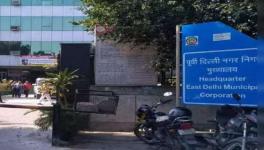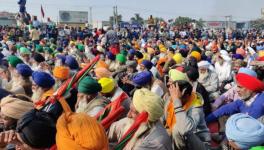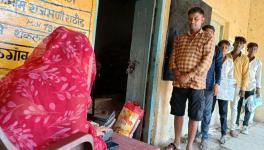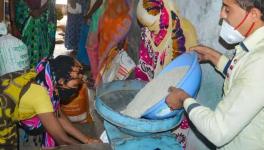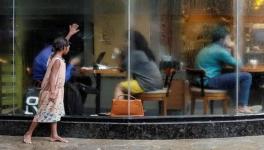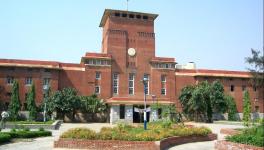Public Meeting in Delhi Raises Concerns Over Slashed Govt Expenditures on Food Security
Delhi: In reaction to the Centre slashing allocations for food subsidy in the Union Budget, a mass public meeting took place at the Constitution Club on Friday, comprising nearly 300-400 people from various parts of Delhi. The meeting was conducted to discuss and present a way forward on food security in India.
Experts from related sectors, activists, and civil society discussed the issues pertaining to the Union Budget, the unavailability of ration cards, and decreasing quantity and quality of mid-day meals.
The BJP government, in its recent Union Budget, allocated Rs 1,97,350 crore to food subsidy, which is a decrease of 31% compared to the revised budget of Rs 2,87,194 from the last year. Experts believe this will take India backwards in its efforts to tackle hunger and public welfare.
The panel noted that the Oxfam and World Hunger Index reports illustrate the despair working-class communities continue to face even after the lockdown has been lifted. In this context, the government's decision to reduce the ration entitlement of 81 crore people by 50% shows its insensitivity, the panel said. It added that if the government wants to fully implement the Right to Food Act, the Public Distribution System (PDS) should also be available to non-cardholders, and pulses should be distributed. Similarly, the panel suggested that the government should expand the coverage of the National food security Act (NFSA) as the population has grown by almost 20% since the last limit was set.
The meeting was organised by the think tank group ‘Delhi Rozi Roti Abhiyaan’, a network of individuals and organisations working in the national capital towards achieving food security.
The meeting was attended by lawyer Prashant Bhushan, activist Anjali Bhardwaj and noted parliamentarian Dr B.K Kango, along with labour rights activists and social workers. Further, many women participated in the discussions and spoke about their experiences with issues they faced while availing the benefits of the social security schemes.
In his statement, Prashant Bhushan, a distinguished lawyer and activist, questioned the Prime minister's intent while he spoke of the pro-poor policies of the BJP government.
He said, "While defending his friends in Parliament, PM Modi says he has also done much for the poor, but the reality is entirely different. The NFSA (national food security act) covers 75% of the rural and 50% of the urban population. However, the population has grown by almost 20% since then. Why is the government not revising the coverage of NFSA, then?”
Delhi, along with many other cities in the country, has been facing a severe shortage of ration cards, due to which many eligible citizens cannot avail of these schemes.
According to the global hunger index report, 2022, India ranked 107 out of 121 nations on the list, which is an indication of the challenges India faces when it comes to hunger and malnutrition. Considering this, the government's spending on social protection programmes has become increasingly important, including PDS, Anganwdis, pensions, and MGNREGA.
“The question is, on whose behalf is the government working? Is it just for a few corporations, or is it working for the people? We, the people, pay tax on everything. If we buy a small package of salt, we pay tax on it as well; then it should be us who need to be served, not the few elites,” said Bhardwaj, who has been associated with the Right to food campaign for a long time. She also expressed concerns about the massive budget cuts pertaining to food security and the discontinuation of the Pradhan Mantri Gareeb Kalyaan Yojana (PMGKAY).
The meeting was attended by a large number of women. One of them was Dinesh Kumari (40), who had come from Delhi's Savitri Nagar. Speaking with NewsClick, she said it has been over three years since she applied for a ration card but has not received it yet.
"We are a family of six. My daughter and husband both lost their jobs due to the lockdown. My husband now earns not even half of what he used to before the pandemic. When I asked the official about the reason for not getting the card, he told me that we are a well-off family and do not need it. We barely survive as the huge chunk of income goes towards buying the ration from the private wholesalers."
Get the latest reports & analysis with people's perspective on Protests, movements & deep analytical videos, discussions of the current affairs in your Telegram app. Subscribe to NewsClick's Telegram channel & get Real-Time updates on stories, as they get published on our website.










